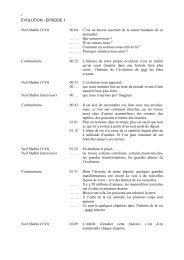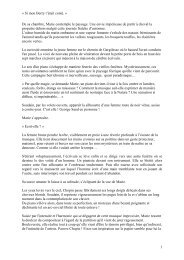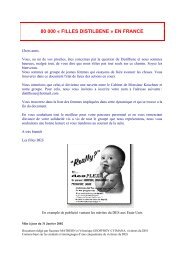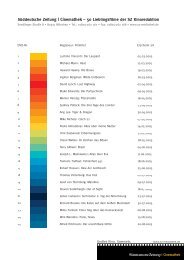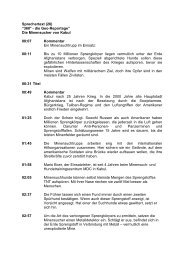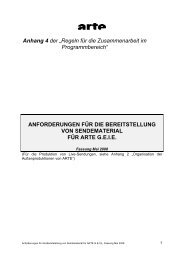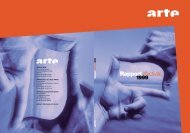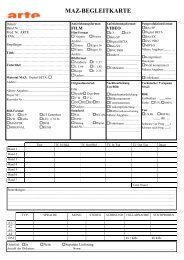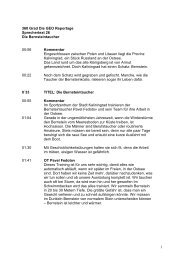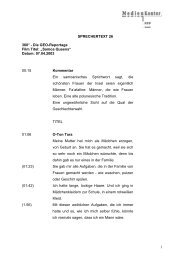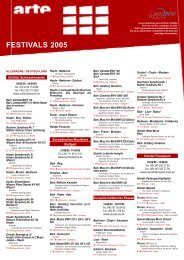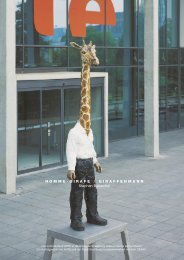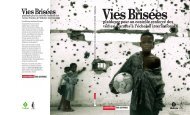POPs IN AFRICA HAZARDOUS WASTE TRADE 1980 - 2000 ... - Arte
POPs IN AFRICA HAZARDOUS WASTE TRADE 1980 - 2000 ... - Arte
POPs IN AFRICA HAZARDOUS WASTE TRADE 1980 - 2000 ... - Arte
Create successful ePaper yourself
Turn your PDF publications into a flip-book with our unique Google optimized e-Paper software.
30 Journal of Commerce, December 23, 1988; La Liberte (Switzerland), November 14, 1988.<br />
under negotiation between the Angolan government and a major<br />
Swiss arms trader, Arnold Andreas Kuenzler.<br />
The scheme reportedly would bring over 5 million tons of<br />
western industrial waste to Angola for incineration and storage in<br />
exchange for $2 billion and the construction of a new city, port,<br />
and airfield which would provide 15,000 jobs.<br />
According to the Lisbon weekly, O Independente, the Angolan<br />
government entered a preliminary agreement on the proposal on<br />
November 5, 1988. However, Angola’s official news agency<br />
reported that President Jose Eduardo dos Santos denied having<br />
signed any preliminary agreement on the scheme.<br />
Kuenzler said, “We want to build in Africa the same installations<br />
that Ciba-Geigy [a major chemical manufacturer] has in Basel<br />
[Switzerland.] If it is good for the Swiss, it is good for the<br />
blacks!” 30<br />
The waste was to be imported through the southern port of<br />
Namibe, Angola, and then incinerated in southern Angola. The<br />
incinerator would have produced toxic waste water and residual<br />
ash, which would have been buried in the Angolan desert.<br />
According to the proposed contract, a copy of which has obtained<br />
by the European Environmental Alliance, the Angolan<br />
government was to receive USD 2 million for “national projects<br />
of an urgent nature.”<br />
The proposed contract gave a waste importation license to<br />
Kuenzler, who, with his partner Roland Straub, told O<br />
Independente that they hoped to clear between USD 5 and USD<br />
10 million from the deal.<br />
The project was to be financed by three U.S. corporations: Texas<br />
Alley Bank, the Millen Bank (also of Texas), and the U.S.<br />
Casualty Agency insurance company. Disposal of the ash and<br />
waste water was to be handled by another Swiss firm, Landis and<br />
Gyr.<br />
The Angolan government denied that any such deal had been<br />
signed. The Angolan ambassador in Paris, Luis de Almeida, said<br />
that Angola was not and never would be a “dustbin” for any<br />
power. Another Angolan official was quoted as saying that all<br />
reports of the deal were “only aimed at smearing the credibility<br />
of our country.” The secretary General of the Organization of<br />
African Unity, Ide Oumaru, also said that such reports were false.<br />
Kuenzler, however, when asked in a radio interview, “Are you<br />
certain that you will export this waste or build this factory in<br />
26



